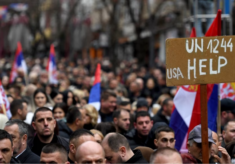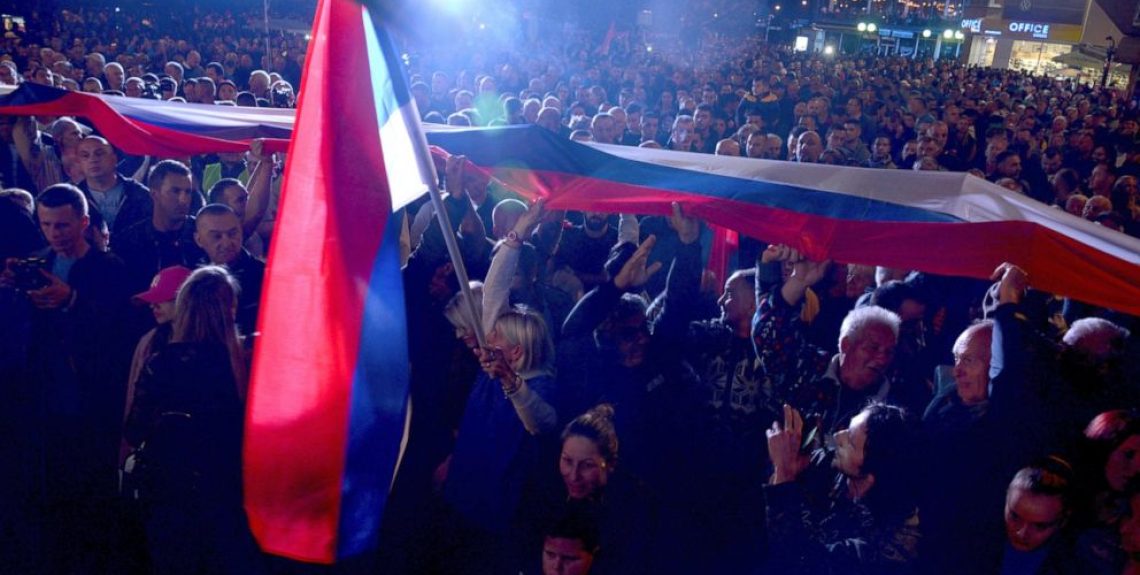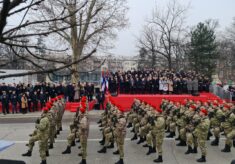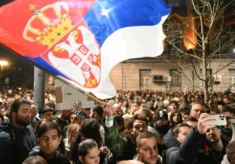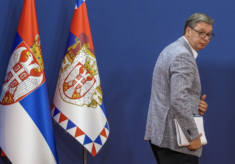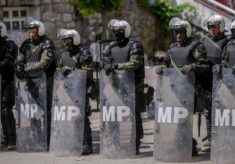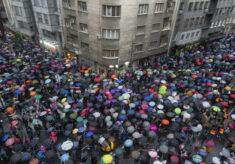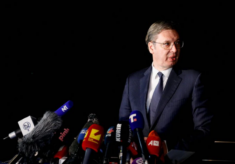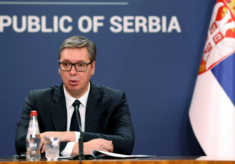Bosnia and Herzegovina (BiH), a Balkan country still deeply divided along ethnic lines, held general elections on the 2nd of October. The vote coincided with deep political infighting and high tensions, including new threats of secession from Bosnian Serbs and frustration among many Bosnian Croats, who have been demanding electoral reforms to be better represented in the Federation, one of the country’s two entities.
Voters casted ballots for three of Bosnia’s tripartite presidency members, MPs in the central parliament, and several local races. The three established ethnic parties, the Bosnian Croat HDZ, the Bosnians Serb SNSD and the Bosniak SDA, secured significant wins. A surprise outcome was yet the defeat of a two-time member of the country’s tripartite presidency and SDA’s leader, Bakir Izetbegovic, defeated by social democrat Denis Becirovic.
Milorad Dodik, a long-time Bosnian Serb nationalist leader who is openly pro-Russian and supports the secession of Republika Srpska (RS) from Bosnia and Herzegovina, ran for president of the country’s Serb entity RS. According to preliminary results, Dodik received 48%, while his opponent Jelena Trivic received only 43%. The results, however, were challenged by Trivic and the opposition, who staged mass protests in the RS, calling for a recount of the votes. The Central Electoral Commission ordered a recount in a dramatic development, infuriating Dodik and thousands of his supporters. They marched in the streets of Banja Luka, the Bosnian Serb capital, threatening secession. Finally, following the recount, Dodik was declared the winner of the presidency over Bosnia’s Serb entity, though Trivic still did not recognize the results. New anti-Dodik protests have been planned for November.
After the victory, Dodik left the chair of the Bosnian Serb member of the tripartite presidency to his long-time ally Zeljka Cvijanovic. The mandate of the current Bosnian Croat member of the presidency, Zeljko Komsic, was confirmed by the voters.
The vote’s outcome confirmed the grip on power of major ethnic parties that ruled the country in the decades following the war. Even though no positive development in terms of reforms has been observed in recent years and cannot be expected shortly, just after the elections, the European Commission surprisingly recommended that EU countries grant Bosnia candidacy status to join the bloc.
“The Commission recommends that candidate status be granted to Bosnia and Herzegovina” by the European Council “on the understanding that several steps are taken,” EU commissioner for enlargement Oliver Varhelyi announced on October 12. The commission said Bosnia needed to progress on democracy, the functionality of state institutions, the rule of law, and the fight against corruption and organized crime. “Of course, it is up to the candidate countries to reform their economies and institutions and advance towards our union,” said Commission’s chief Ursula von der Leyen, noting that the “wind of change is once again blowing through Europe, and we have to capture this momentum.”
Several EU countries, including France, the Netherlands, and Germany, are said to oppose the decision, which they see as an excessive reward for Bosnia-Herzegovina’s political elite, who have done little to advance the country’s EU ambitions. However, pushed by other EU countries such as Austria and Slovenia, Brussels is convinced that keeping Bosnia out of the EU integration process would be a mistake, leaving the country too vulnerable to the influence of external powers such as Russia, China, and Turkey.
BiH’s candidate status is expected to be decided by December, and it could be one of the last chances for Sarajevo to open the door to EU entry, a long process that could last decades.
